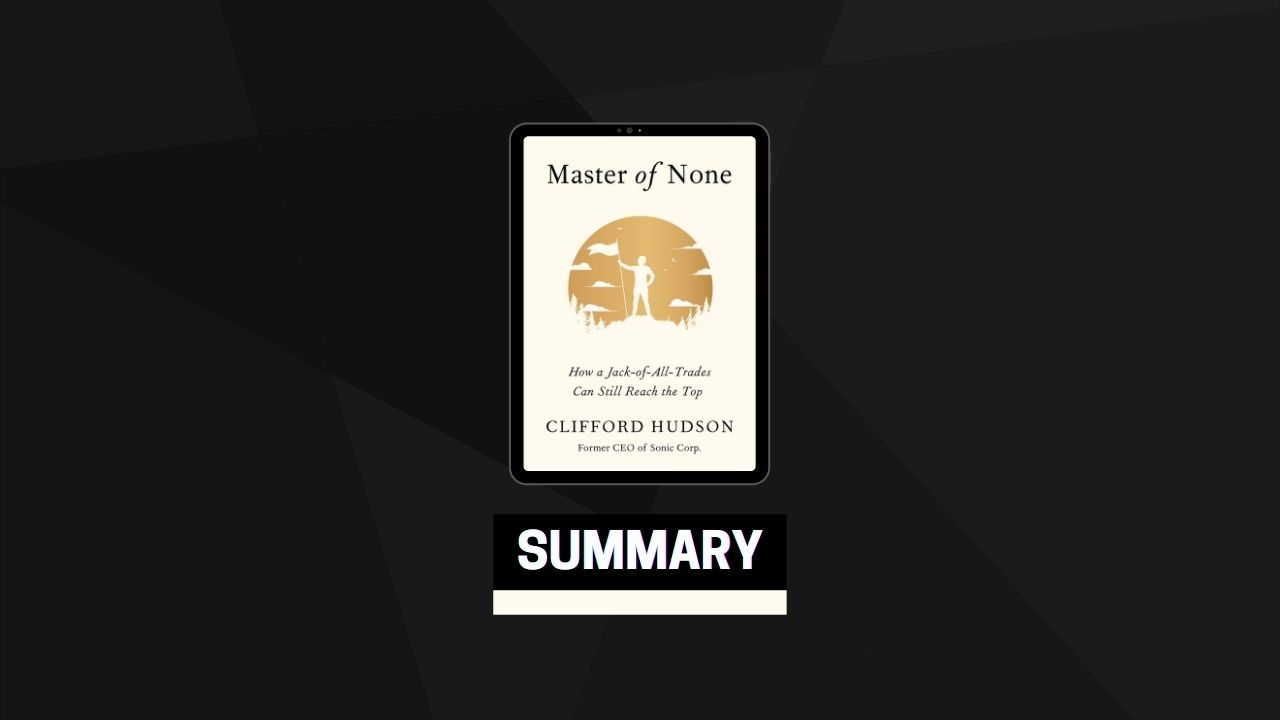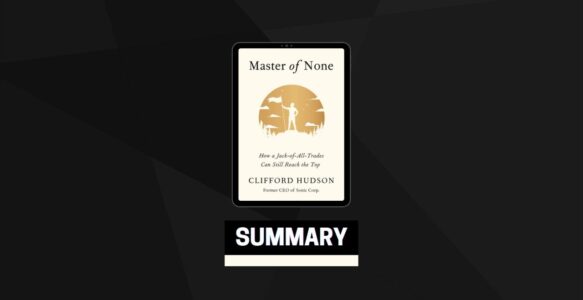Have you ever had an injury that required rehabilitation? A critical facet of the treatment plan is stretching; it’s the crux that dramatically speeds up the recovery process by permanently reorganizing the scar fibers and allowing the circulation to become normal. If you have an injured leg, a couple weeks into rehab will reveal pliable leg muscles as a result of stretching, which in turn will have promoted gentle healing. But flexibility will have only taken you so far because, regardless, your leg muscles will have shrunk; despite the positive effects of stretching, atrophy is the inevitable reaction to underuse.
If we claim to be open and flexible, yet all we do is sit in the same chair and do the same thing day in and day out, then what is the point of flexibility? Remaining nimble as a way to prepare for change does us no good if, when the change comes, our muscles have atrophied. We can all say we’re open to change and to new opportunities, but the reality is if we don’t practice changing—if we don’t activate our muscles, so to speak—we’re not going to be able to use that so-called flexibility when we actually have to change.
Change Is a Constant
Life
In life, the way you remain flexible and alive is by, ironically, fighting against the urge for self-preservation. So often we resist change and flexibility in the name of preserving ourselves for our jobs, our main work, the things that “really matter.” How many times have you put something off because you have to get up early for work the next morning? How many times have you avoided a conversation or not entertained a thought due to a pressing matter that’s taking up a lot of brain space? How many times have you admitted to yourself that those are just excuses? Think about all the positive that could come out of resisting the urge to use self-preservation to the detriment of flexibility.
Work
We live in a tumultuous time because of technology, and it puts us in a dog-eat-dog world, no matter what job you have. It’s no wonder we want to lay claim to the ideas that are ours and make sure everybody knows they’re ours. We don’t want to be overlooked, miss our opportunity for promotion, or lose our jobs—to robots or otherwise. We get defensive and hold tightly to what we feel we’ve justifiably earned. Whether we’re cognizant of it or not, that defensiveness is what closes us off and can become our undoing.
We can’t learn or become better at our jobs if we hold tightly to an inflexible and overprotective mindset. We can’t flourish in our roles if we succumb to the tendency of not helping others or being unwilling to receive help from others—we won’t learn anything new or become better at our jobs that way, since, often in our jobs, we become better from the people around us. We learn from the people who’ve gone before us, but also from new people who come in afterward and offer a new perspective. Cutting ourselves off from those people and all they offer only means we’re hindering our own growth.
Leadership
As a leader, how do you keep your muscles activated? How do you keep them from atrophying? One of the easiest, and likely underutilized, ways to remain both flexible and strong within your leadership position is through accessibility and listening. That is, being available for conversations and then being actively present while having them.
Many leaders say they’re accessible, but when it comes down to it, they’re too busy, too distracted, too ill at ease, or too egocentric to make themselves readily available. Where do you fall? Maybe you place productivity ahead of approachability, or maybe you lend yourself to others through alternatives like comment or idea boxes.
Anybody can pay lip service, but only a leader with integrity can make the time to meet with and actively listen to those under his or her leadership. The days of the leader in the ivory tower are long gone, or at least they should be. True accessibility can only be achieved through more face-to-face communication, more conversations, and listening to more voices.
You Don’t Need to Originate Opportunities to Seize Them
Life
We’ve all heard the saying that it’s not what you know, it’s who you know. In the world of networking in which we now live, you never know when talking with someone will turn out to be the right someone—the someone with a connection or an “in” that leads to a lucky break.
Everyone you will ever meet knows something you don’t. What can you learn from them? What can you see? What opportunity can arise from your exchange? Conversations allow us to sow seeds wherever we go—in people, in jobs, in new ventures and experiences—and we never know for certain which seeds will sprout, but we trust the more we sow, the greater the potential harvest.
Work
Maybe you didn’t hit your sales goal, quota, or deadline. Maybe you were unprepared for a meeting or missed it altogether. Maybe you let a team member down or vice versa. Maybe your big pitch crashed and burned. It happens to the best of us because failure is inevitable, as much in our professional life as in our personal one.
The good news is that opportunity can be found in failure. All of business is an experiment, and as is the essence of experiments, we won’t know until we try. Failure tells us what doesn’t work so we can pivot and find what does work, faster; it’s an opportunity to reconfigure our approach. Thomas Edison constructed thousands of different theories in connection with the theory of the light bulb before it was successful. “I have not failed. I’ve just found 10,000 ways that won’t work,” he said.
Leadership
When was the last time you were a sounding board for someone and it led to their aha! moment? What positive results have come from actively listening to your team and their thoughts? Instead of immediately jumping in to give advice or trying to troubleshoot a problem, a good rule is to ask open-ended questions. Curiosity can go a long way, and it starts by shifting the focus to being interested rather than being interesting.
Eventually, you’ll ask a question no one else has asked before. The answer can be what inspires productive change and meaningful opportunities for those you lead. After all, the intention here is not to find opportunities for you or your business; it’s to find opportunities for them, the people who look to you as their leader. If those opportunities are business related, it may come back to benefit you anyway, but that needs to be the side effect and not the objective.
Relevance Is a Paradox
Life
When we look in a mirror, we see ourselves. We see a reflection of our pluses and minuses, and get an immediate recap of what we’re presenting to the world. When we look out a window, we see everything else—other people, the state of our environment, and the inevitability of change, just to name a few. Mirrors cater to our ego and windows shift the focus to anything but.
Which are you more likely to do: look in a mirror or look out a window? Are you consumed with yourself and your needs, or are you more apt to look out for the well-being of others? Do you care more about your projection or your impact? The ultimate question becomes: in this self-obsessed world, are you going to fill your home with floor-to-ceiling mirrors or windows?
If you’re of the position of win-for-me versus win-win, they can see it. You may think you look fine in the mirror, but that mirror is transparent. That said, since it’s transparent, they can also see if you’re of the win-win posture; they can see those attributes playing out just as easily.
Work
Think about those certain colleagues whom you can see through, the ones who are all about themselves. They’re not fooling you. Do you want them on your team? Not really. Do you want to go out of your way to help them? Probably not. Would you be able to tell if they had a change of heart and prioritized the team over themselves? Yes. And seeing that, knowing it was for real, would permanently change the way you see and interact with them.
Leadership
When it comes to leadership, the difference between timeliness and timelessness is not insignificant, though the emphasis is now more on the difference between position and posture. Your position is your what. As in, what are you? You’re the VP, the CEO, the head of a department. What you are is important and hard-earned. But your posture is your how, which is more important and harder to earn. It’s how you carry yourself, how you lead those who answer to you, and how you’ll ultimately get to where you want to go.
The positional leader takes the “you’re only as good as your last _____” mentality as opposed to the posture of “everybody has something to offer.”
You’re proud of your position, as you should be, but are you proud of your posture? Perhaps the better question is what’s more important to you: furthering your position or strengthening your posture? A great leader cares more about the latter.


